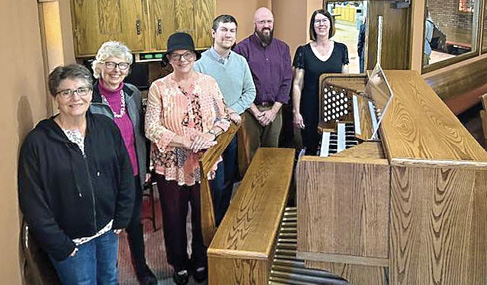Items of interest from various sources of religious news and opinion, in print and on the web.
Bugs are People, Too. Climate change adherents have long been critical of the beef industry, claiming that it contributes to global warming. One suggested solution has been the industrial farming of insects to provide a high-protein food to replace beef. But in an article for the online newsletter Aeon , bioethicist Jeff Sebo of New York University argues that insects may be sentient. Says Sebo, “Insects engage in some behaviors that suggest a capacity for positive and negative experiences.” Fruit flies, for example, sometimes get depressed: “Fruit flies seem to be capable of anhedonia, a loss of interest in activities previously found to be rewarding, and a common symptom of human depression. If you expose flies to aversive vibrations over several days, their activity begins to change in predictable ways. The shaken flies show reductions in various voluntary actions, though their reflexive behavior remains unchanged. In particular, shaken flies consume much less glycerol (commonly used as a reward in fruit-fly studies) than non-shaken controls, suggesting that the shaken flies have lost their taste for sweets.” Part of the argument seems to be that, since insects may be capable of feeling irritation or pain, therefore it is immoral to kill them. One wonders why the same argument wouldn’t apply to unborn human beings. But I guess that must be different (?) Sebo, Jeff. “Don’t farm bugs.” Essays. Aeon.co, 27 Jul. 2021. Web. 25 Nov. 2022.
Turns Out Amos Wasn’t Kidding About That Earthquake. “Archaeologists in Jerusalem have found evidence of damage to buildings and pottery that may have been caused by a huge, eighth-century B.C.E. earthquake mentioned in the biblical books of Amos and Zechariah. Excavations led by the Israel Antiquities Authority (IAA) and the Ir David Foundation unearthed a layer containing the ruins in the east Jerusalem neighborhood of Silwan, reports Nir Hasson for Haaretz. The findings add to evidence of the earthquake previously discovered elsewhere in Israel and in the seabed of the Dead Sea. The researchers say they considered other possible explanations for the damage, including fire, but found no ash or other evidence suggesting the city was burned at that time. They also looked at the possibility that the destruction was isolated to one spot. ‘[T]o prove that this doesn’t involve one building that sustained an isolated trauma, we compared it to other sites, both in Jerusalem and at other places where we also see this layer, so that we can make the connection and say that this isn’t an isolated event but rather something more widespread,’ said Joe Uziel, an archaeologist with the IAA.” Gershon, Livia. “Researchers Find Physical Evidence of Earthquake Described in Old Testament.” Smart News. Smithsonianmag.org, 6 Aug. 2021. Web. 25 Nov. 2022.
Heresy is Alive and Well Among Americans. In a joint study released in September by Ligonier Ministries and Lifeway Research, researchers found that a number of ancient heresies, long rejected by official church teaching, are nevertheless widely held by Americans—including those who consider themselves Christians. “Overall, adults in the US are moving away from orthodox understandings of God and his Word year after year.” The survey found, for example, that over half of U.S. evangelicals believe that God changes, a denial of the doctrine of immutability. Two-thirds believe that children are born innocent, a denial of original sin. 53% deny Scriptural inerrancy, agreeing with the statement that “The Bible, like all sacred writings, contains helpful accounts of ancient myths but is not literally true.” Well over half of Evangelicals agree with the statement, “God accepts the worship of all religions, including Christianity, Judaism, and Islam.” 43% of Evangelicals say that “Jesus was a great teacher, but he was not God.” Ligonier Ministries founder R.C. Sproul has long said that “Everyone is a theologian.” But this survey proves that not everyone is a good theologian. N.a. “The State of Theology.” Key Findings. Thestateoftheology.com, 19 Sep. 2022. Web. 25 Nov. 2022.

when their new church organ was dedicated.

